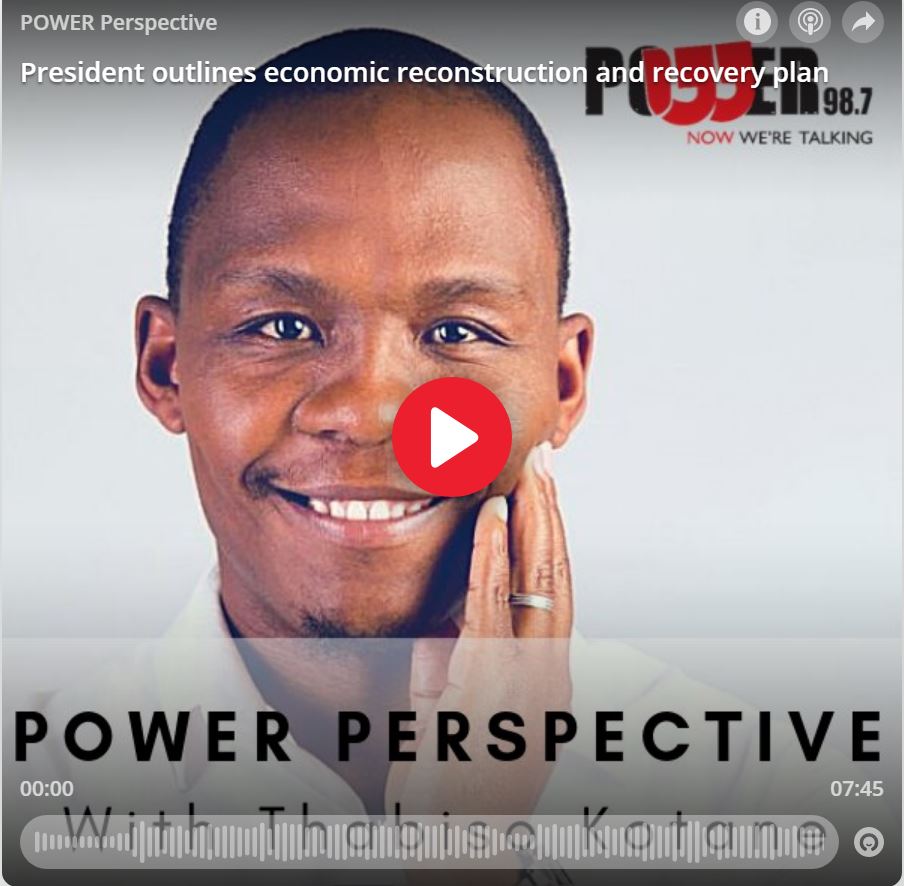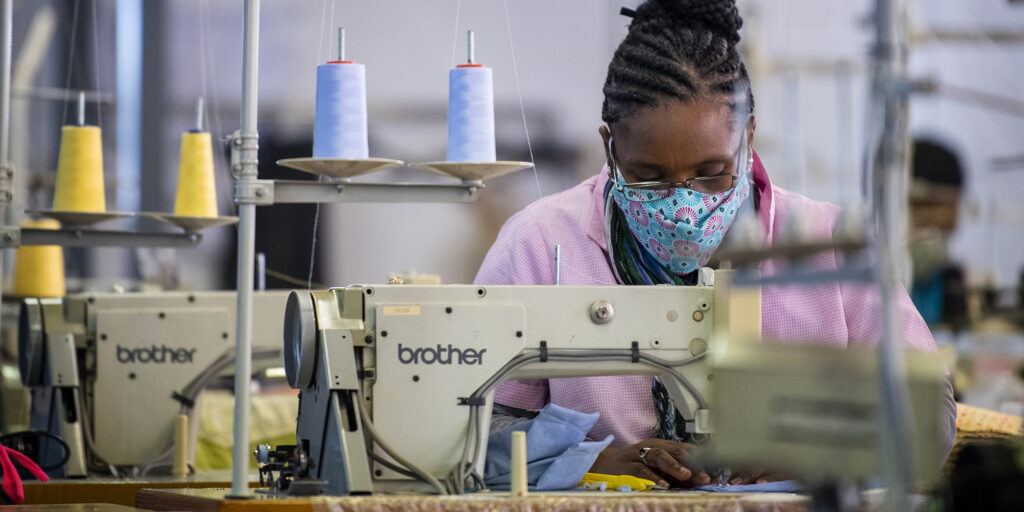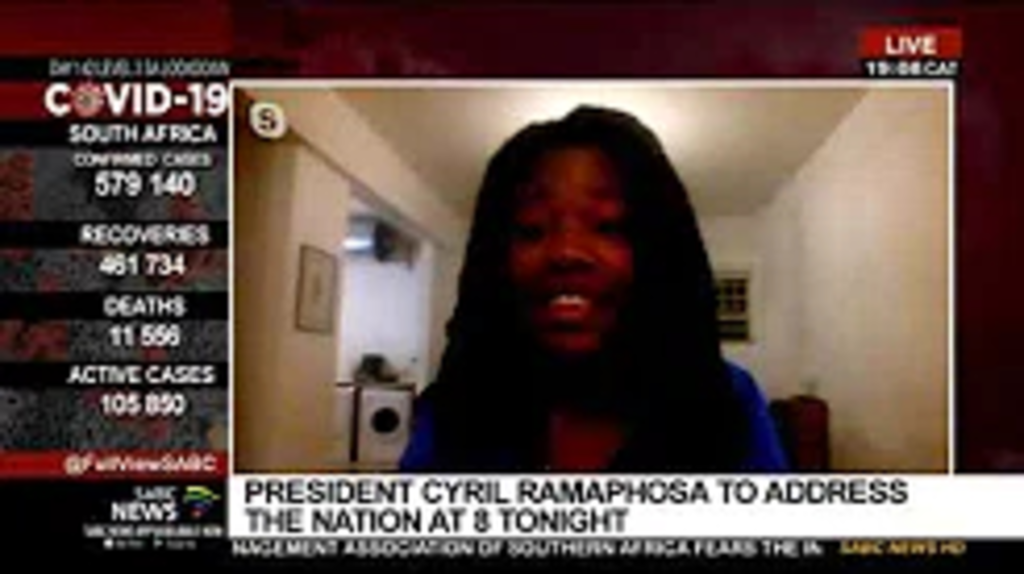Eskom: The roots of a crisis

Eskom has long been in a precarious financial position with its operations in disarray as the power supplier is unable to meet electricity demand.
President outlines economic reconstruction and recovery plan

Thabiso Kotane speaks to Institute of Economic Justice co-director Neil Coleman about President Cyril Ramaphosa’s economic reconstruction and recovery plan.
The Fix – An ‘inclusive’ economic recovery plan | Part Two

Nedlac’s plans don’t deal with the immediate humanitarian crisis. Courtesy #DStv403
Covid-19: Towards a safer, more cautious and more equitable opening of the economy in SA

An IEJ Policy Brief published today maintains that South Africa needs a safer and more equitable reopening of the economy, complemented by an upscaling of state support mechanisms to workers, the unemployed, and vulnerable businesses.
Fiscal Futures Part 3: The role of fiscal policy in the post-Corona economic recovery

South Africa has a comparably large government sector, and the choices made about revenue, expenditure, the deficit and how money is spent will play a defining role in shaping how incomes and employment will grow.
Discussion on economic recovery post COVID-19 lockdown restrictions

Pundits say the full economic damage caused by COVID-19 and the lockdowns is uncertain. It will take several months, and even years, to have a clear picture of where the damage has occurred and how severe it is.
Confronting COVID: How Civil Society is Responding Across Countries | South Africa
The Institute for Economic Justice is a progressive economics think tank based in South Africa. The IEJ works at the intersection of policy, research and advocacy to advance social justice, promote equitable economic development that realises socioeconomic rights, and ensure a thriving and inclusive economy.
Economies of alienation: IMF loan

While the interventions to support businesses through this unpredictable time have received much attention in the media, less has been paid to the expansion of our established welfare systems to support individuals.
Economies of alienation: Social grants

While the interventions to support businesses through this unpredictable time have received much attention in the media, less has been paid to the expansion of our established welfare systems to support individuals.
Fiscal Futures Part 1: Understanding the concept of “fiscal sustainability” in the post-Corona world

In our attempt to create a platform where experts can share their ideas on current topics, ERSA introduces the first in a series of conversations: Fiscal Futures. In the context of the Covid-19 pandemic, given the current economic environment, we delve into what fiscal sustainability is, and whether or not it can and should be achieved in South Africa. Incorporating several different perspectives, this webinar is certain to broaden your knowledge on the topic.
